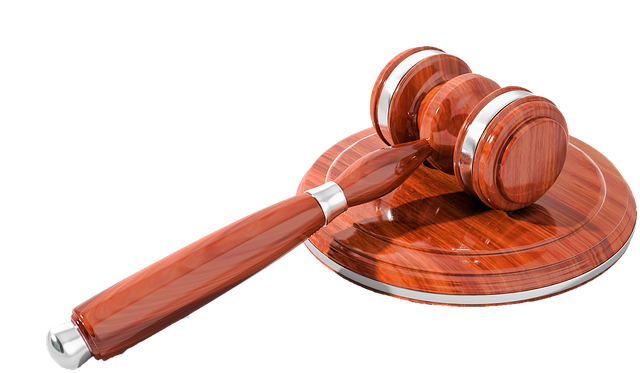Antitrust laws protect competitive markets from practices like monopolization, price-fixing, and group boycotts, ensuring fair play across sectors. Understanding complex environmental compliance laws is vital for industries like pharmaceuticals, technology, and financial services to avoid legal pitfalls, especially in dynamic business environments. Government agencies investigate alleged antitrust violations through evidence collection, analysis, and strategic interventions, aiming for fair outcomes. Businesses can defend against allegations by challenging law interpretations, demonstrating lack of harm or intent, and showcasing regulatory compliance with expert testimony. Historical cases like Standard Oil and Microsoft offer lessons in enforcing fair market dynamics and preventing monopolies, fostering a competitive and innovative landscape.
“Navigating the intricate web of antitrust laws is essential for businesses aiming to thrive in a competitive market. This article delves into the crucial aspect of understanding complex environmental compliance laws, specifically focusing on antitrust violations. We explore key legal concepts defining these offenses, industries at heightened risk, and the roles of government agencies in investigations. Additionally, we analyze strategies for accused businesses and gain insights from historical cases, offering valuable lessons for effective compliance and defense.”
- Defining Antitrust Violations: Key Legal Concepts
- Common Industries at Risk of Non-Compliance
- Investigating Alleged Offenses: Government Roles & Powers
- Legal Defenses and Strategies for Businesses Accused
- Historical Cases: Lessons from High-Profile Suits
Defining Antitrust Violations: Key Legal Concepts

Antitrust violations refer to actions by businesses or individuals that restrict competition or distort market forces. These actions are prohibited under laws designed to promote fair trade, ensuring consumers access goods and services at competitive prices. Understanding these violations involves grasping key legal concepts such as monopolization, price-fixing, and group boycotts, which are all categorized under the umbrella of anti-competitive practices. By defining what constitutes an antitrust violation, legal systems aim to maintain a balanced market ecosystem, fostering innovation and preventing the rise of dominant players that could leverage their power to limit choices or inflate prices.
The legal landscape surrounding antitrust laws is complex, requiring a nuanced understanding of competitive markets and business strategies. These laws not only apply to corporate clients but also hold individuals accountable for their roles in anti-competitive schemes. Furthermore, they extend their reach to philanthropic and political communities, ensuring that charitable initiatives and government actions do not unduly favor specific entities or sectors, thereby maintaining a level playing field for all participants in the economic sphere. Navigating this complex environment of compliance laws is crucial, especially as businesses adapt to evolving market dynamics and technological advancements continue to reshape industries.
Common Industries at Risk of Non-Compliance

In the dynamic landscape of business, understanding complex environmental compliance laws is paramount for any respective business aiming to avoid indictment. Industries such as pharmaceuticals, technology, and financial services are particularly vulnerable to antitrust violation cases due to their intricate market structures and potential for collusion or anti-competitive practices. These sectors often deal with sensitive data, intellectual property, and exclusive partnerships, which can inadvertently lead to legal pitfalls if not managed correctly.
For instance, the tech industry’s rapid innovation and reliance on supply chains make it easy for companies to cross ethical boundaries, such as fixing prices or dividing markets. Similarly, financial institutions might engage in anti-competitive behaviors like price-fixing or market manipulation, which can result in severe legal consequences, including general criminal defense strategies. Proactive compliance measures, rigorous internal audits, and transparent business practices are essential to navigating these complex regulations and avoiding potential antitrust violations.
Investigating Alleged Offenses: Government Roles & Powers

Investigating alleged antitrust violations is a complex task that falls primarily under the jurisdiction of government agencies. These agencies are tasked with understanding and enforcing intricate environmental compliance laws, which can vary greatly depending on the industry and nature of the alleged offense. They possess broad powers to gather evidence, issue subpoenas, and conduct interviews during their investigation. This process involves meticulous documentation and analysis to determine if a company or individual has violated antitrust regulations.
The government’s role is crucial in ensuring fairness and competition within markets, especially in high-stakes cases. They must navigate all stages of the investigative and enforcement process, from initial complaints to legal proceedings. By employing specialized teams with expertise in economic analysis and legal strategy, they can effectively interpret complex data and evidence. This ensures that any actions taken are fair, just, and aligned with the broader goals of maintaining a competitive market environment.
Legal Defenses and Strategies for Businesses Accused

When facing antitrust violation allegations, businesses often navigate a complex legal landscape. Understanding and navigating these environmental compliance laws require a strategic approach. Companies accused of such violations can employ various legal defenses to mitigate potential consequences. One common strategy is challenging the interpretation of anti-trust laws, arguing that their actions were within the bounds of fair competition. Businesses may also present evidence demonstrating lack of intent to harm the market or prove that their practices had no significant adverse effect on consumers.
Additionally, building a defense around regulatory compliance and good faith efforts can be powerful. This involves showcasing that the company acted in accordance with relevant guidelines and sought to contribute positively to the industry and philanthropic and political communities. Through meticulous documentation and expert testimony, businesses can aim for a complete dismissal of all charges, thereby avoiding indictment and its potential repercussions.
Historical Cases: Lessons from High-Profile Suits

Antitrust violation cases have a rich history, with notable suits that offer valuable lessons in understanding complex environmental compliance laws. High-profile incidents like the Standard Oil case in the late 19th century highlighted the need for regulatory intervention to prevent monopolistic practices that stifle competition and harm consumers. These historical cases serve as a reminder of the importance of maintaining fair market dynamics, ensuring that corporations adhere to antitrust principles and compete fairly.
Over time, subsequent cases like Microsoft’s antitrust suit in the late 20th century have further refined our understanding of these laws. The lessons from these historical suits emphasize the need for proactive enforcement by regulatory bodies and legal experts, as well as the importance of achieving extraordinary results for both corporate and individual clients across the country. By examining past cases, we gain insights into how to navigate the intricate web of antitrust regulations, fostering a more competitive and innovative business environment.
Antitrust violation cases are a critical aspect of ensuring fair competition in the marketplace. By understanding complex environmental compliance laws, businesses can navigate the risks prevalent in various industries and avoid becoming defendants in high-profile suits. This article has provided insights into defining violations, identifying at-risk sectors, government investigations, legal defenses, and historical case lessons. Armed with this knowledge, businesses can proactively foster compliance, safeguarding their reputation and financial health in an ever-watchful regulatory landscape.






